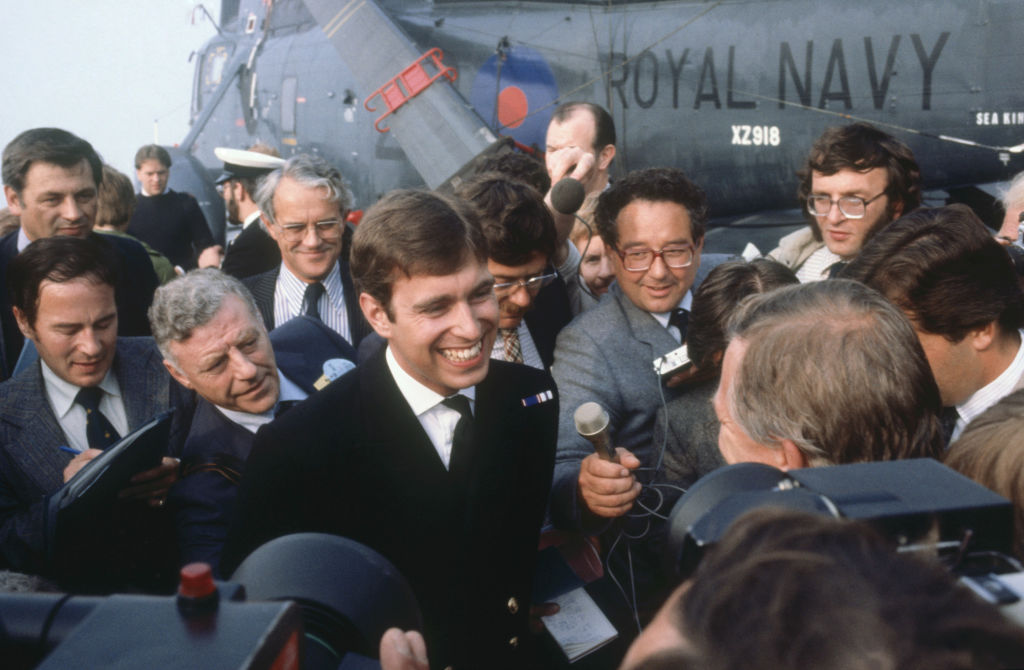The presence of Chinese president Xi Jinping as ‘guest of honour’ at Vladimir Putin’s Victory Day military parade in Moscow today, which will include soldiers from the People’s Liberation Army (PLA), is both chilling and fraudulent. Chilling, because it is the most explicit endorsement yet by Xi of Russia’s militarism and its poisonous narratives about the Ukraine war, and fraudulent because the Chinese Communist party played a marginal role at best in the Allied victory in the second world war.
In the run-up to today’s parade, Putin has linked victory over Nazi Germany with his unprovoked invasion of Ukraine, which he has falsely claimed is to achieve ‘denazification’ of the country. The Kremlin has served up daily propaganda depicting the Ukraine war as a continuation of the ‘Great Patriotic War’, comparing the soldiers fighting in Ukraine to ‘our grandfathers’ who achieved victory in 1945.
The Communist party played only a marginal and cynical role in the fight against the Japanese
A new monument unveiled in Khimki, near Moscow, depicts a Red Army soldier side by side with a Russian soldier fighting in Ukraine. In parts of occupied Ukraine, Russian authorities have erected huge billboards carrying patriotic messages about the 80th anniversary of victory over Nazi Germany. The parade itself is expected to include military contingents implicated by investigators in atrocities in Ukraine.
All of this has been accompanied by a growing glorification of Stalin – and, of course, no mention of the 1939 pact between the Soviet dictator and Hitler, which carved up Eastern Europe between them, before Hitler turned on his erstwhile ally. Nor the fact that many of the estimated 27 million Soviet citizens who died in the Great Patriotic War were Ukrainian. How many is hard to say, but since the bloodiest fighting took place on the eastern front, the Ukrainian sacrifice was potentially greater than that of the Russians.
Ahead of Xi’s arrival in Moscow, airports were closed by Ukrainian drone attacks. Assuming the parade itself is not disrupted, it will be the first time the PLA has sent an honour guard to take part since 2015. ‘Together we must foil all schemes to disrupt or undermine our bonds of amity and trust,’ Xi wrote before leaving Beijing. His presence will endorse the growing fraud that surrounds Russia’s most important holiday, but the Chinese leader, no slouch when it comes to rewriting history, is also making increasing use of fraudulent narratives of the second world war to legitimise his own rule.
While Putin manipulates victory in Europe to his advantage, Xi does the same with regard to the defeat of Japan. ‘The victory of the Chinese People’s War of Resistance Against Japanese Aggression,’ as he calls it, is being used increasingly to buttress the CCP’s growing nationalism, on which it depends for legitimacy. Xi describes the defeat of Japan as ‘the first complete victory won by China in its resistance against foreign aggression in modern times,’ while heaping praise on the CCP and its armed wing, the People’s Liberation Army – which mostly avoided fighting the Japanese.
In 2015, Xi held his own ‘victory day’ military parade to mark the 70th anniversary of the defeat of Japan in the second world war, at which Putin was his special guest. That kicked off a decade of increasingly virulent mythmaking and chest-thumping. The defeat of Japan marked ‘the full victory in the global war against fascism, re-established China as a major country in the world, and won the Chinese people the respect of all peace-loving people around the world,’ the China Daily newspaper recently claimed. It has become a key pillar of CCP propaganda, which depicts the party as a redeeming power in the face of foreign hostility.
In fact, the Communist party played only a marginal and quite cynical role in the fight against the Japanese. Most of the key battles in China were fought by the party’s civil war rivals, the Nationalists, led by Chiang Kai-shek, whom Mao would go on to defeat in 1949. For the most part, Mao resisted pressure from an increasingly exasperated Stalin to put aside his differences with Chiang and fight the common Japanese enemy – thereby reducing the pressure on the Soviet Union. Mao rightly calculated that if the Nationalists exhausted themselves against Japan, it would hasten his seizure of power.
The communist mythology surrounding that period is embodied in the ‘five heroes of Langya Mountain’, where a vast memorial marks the spot where five of Mao’s soldiers, fighting off Japanese invaders, supposedly leapt to their death shouting ‘Long live the Chinese Communist party’, rather than surrender. It is a staple of CCP propaganda, force-fed to children from an early age as an example of the ‘heroic spirit of the Chinese people’. A historian who questioned the story was convicted of ‘defaming the heroes’ and forced to apologise.
Chiang’s defeated Nationalists fled to Taiwan, whose official name is still the Republic of China, where they dreamed for a while of retaking the mainland. These days few Taiwanese want anything to do with an increasingly belligerent China, but Chiang’s successors probably have more right to be marching at a victory day parade than Xi’s PLA does.








Comments